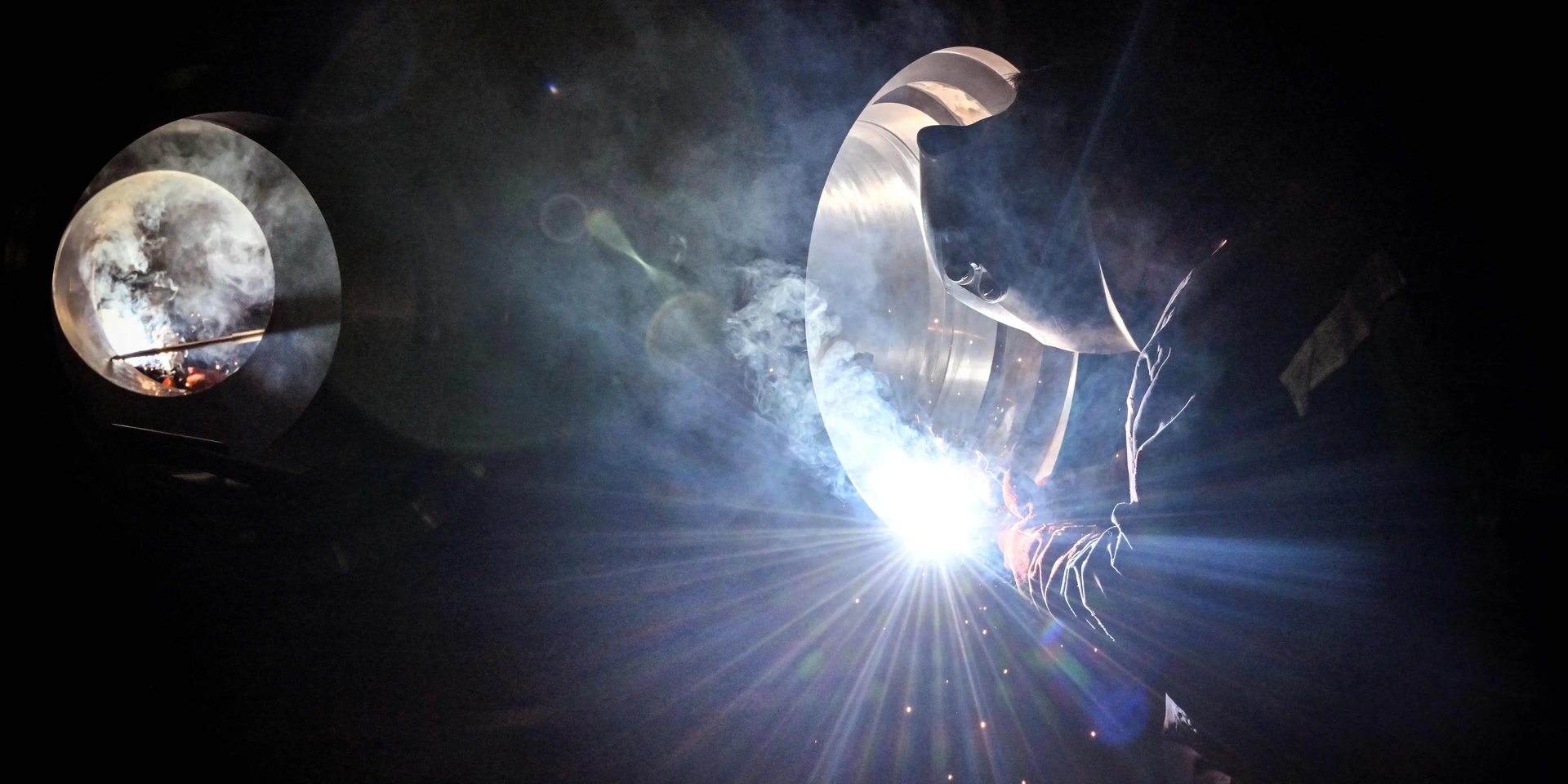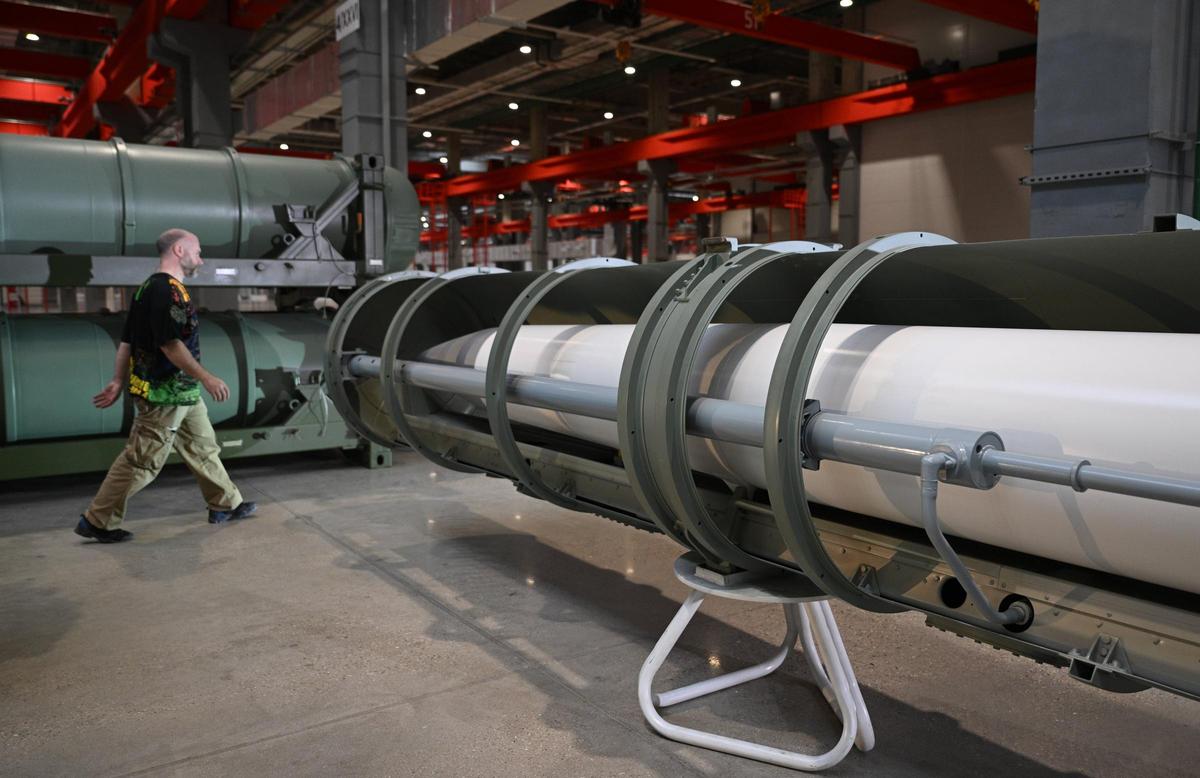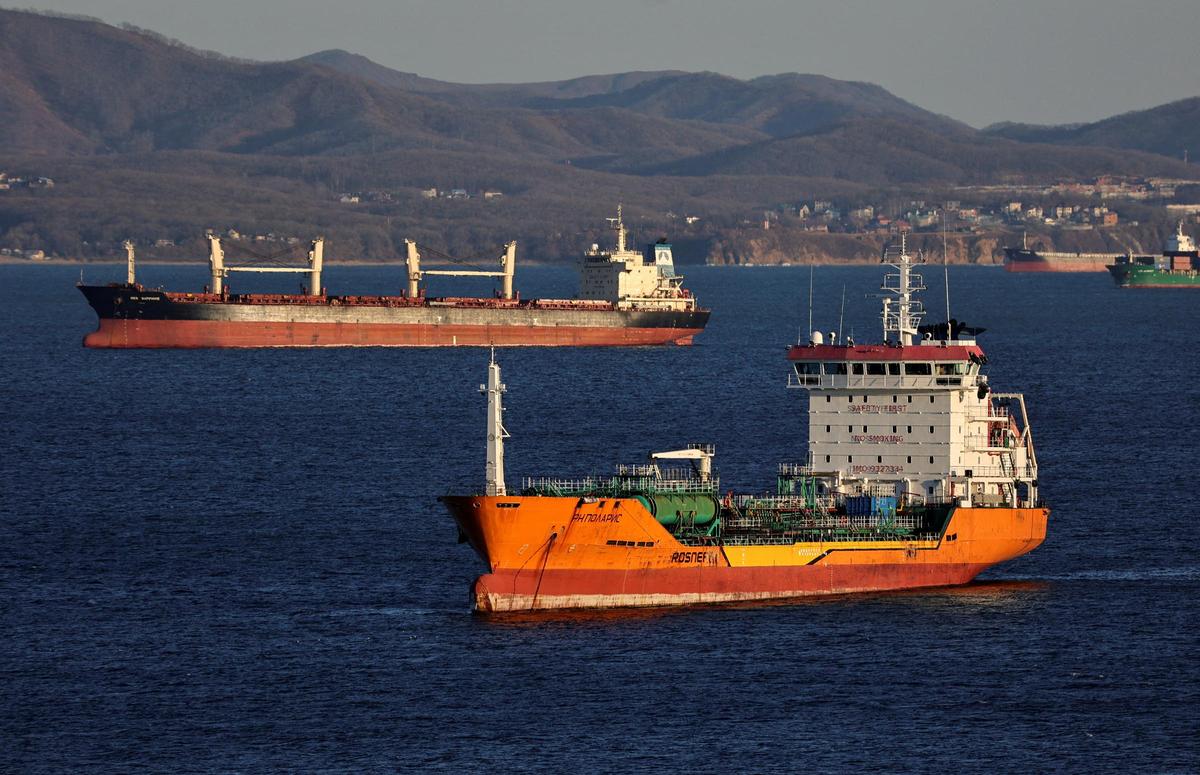The Disappointment of 2023: Sanctions. Only the War can Destroy the Russian Economy Now
Emerging seemingly unscathed, Russia continues to sell oil and purchase components for weapons production, while only losing minor sums in the process. Professor Oleg Itskhoki from the University of California, Los Angeles, explains why this is the case.

This article was based on an interview with Oleg Itskhoki, with some editorial additions.
With sanctions imposed against Russia failing to achieve their intended goals, many have branded them a disappointment. Nevertheless, they did produce a result, just not one that anybody was expecting.
The objectives
The three main objectives were:
- Restrict arms production (and generate discontent among the general population by depriving them of their accustomed way of life, plus undermine the country’s long-term economic prospects). To facilitate this, the supply of many goods, equipment, and technologies (especially microchips and semiconductors), was prohibited immediately after the start of the war. The list of restricted items continues to grow.
- Deprive the aggressor of funds to finance the war. Following the outbreak of war, $300 billion worth of Russian international reserves were frozen. Another blow was dealt in December 2022: EU countries imposed an embargo on the purchase of Russian oil, and the G7, EU, and Australia set a price cap of $60 per barrel on Russian oil transported by sea (which affects a large portion of the oil exported outside the EU).
- Hinder and complicate all economic interactions with the outside world. To enable this, almost all Russian banks were disconnected from the SWIFT financial messaging system.
The purpose of the EU oil embargo was to cut Russia off from its largest consumer. It was clear that Russia would then seek to sell the oil to other countries where it could only be delivered by sea. Therefore, a price cap was imposed and subsequently enforced through an order forbidding the provision of any services related to the delivery of oil purchased from Russia above the “cap” (transportation, insurance etc.). The scheme was based upon the understanding that Russia primarily used European tankers, and the Association of British Insurers controls 95% of the maritime insurance market.
The import ban covers a vast array of goods. Notably, any products which may be used to produce weaponry cannot be imported into Russia or via Russia to a third country. Furthermore, EU nations have the right to prohibit the supply of such goods to third countries if they have reason to believe that they will end up in Russia.
The sanctions enforced upon most major banks and their disconnection from SWIFT constitutes a de facto ban on financial operations in dollars, euros, and the currencies of other countries implementing the sanctions. Russia now refers to these currencies as “toxic,” with most foreign trade transactions now being conducted in rubles, yuan, and the currencies of other “friendly” nations.
Glass half empty
Initially, the sanctions seemed to be working. The price of Urals oil, Russia’s flagship crude oil grade, dropped below the cap. Oil and gas revenues also decreased significantly at the start of 2023, and a large deficit emerged. Our analysis of customs data revealed that the supply of sanctioned goods from the EU fell close to zero, with imports from other countries only subsidizing the losses by a quarter. However, Russia soon found a way to circumvent the retributive measures.
The pace at which global oil distribution managed to adapt was particularly surprising. Europe quickly found a substitute for Russian oil: Russia now constitutes only 3% of the EU’s total oil imports (compared to 28% before the war). In the meantime, Russia redirected their exports to China (which now buys 55%, compared to just 20% a year and a half ago), India and Turkey.
The effectiveness of the price cap has also been called into question. Although the price of Russian oil is well below the market rate, the disparity isn’t as significant as before the cap was introduced in 2022. Crucially, Urals oil constitutes only a fraction of Russia’s total exports, with everything leaving Pacific ports and Far Eastern pipelines still operating at the global market price. We were able to establish this through analysis of customs declaration data.
To bypass Western freight carriers and insurers adhering to the cap, Russia created a shadow fleet by purchasing old tankers, often decommissioned for scrap metal. This fleet transports approximately half of Russia’s oil (its capacity couldn’t accommodate it all) and doesn’t adhere to the restrictions. By last summer, Russian oil prices had exceeded the cap. India and China didn’t have time to negotiate with Russia for a lower price since their previous suppliers had already redirected their exports to the EU, explained Sergey Vakulenko of the Carnegie Endowment for International Peace.
It turned out that tankers using Western services to transport the second half of the oil could also be violating the cap by forging documents, making it difficult to verify the true value of the transaction.
In December 2023, the United States managed to impose sanctions on the Russian shadow fleet. Eight tankers were sanctioned (seven of which belonged to the state-owned Sovcomflot) for violating the price cap.
The market managed to accomplish things that the sanctions couldn’t. Since November 2023, the price of oil has been steadily declining and the value of Urals in the Port of Primorsk recently dropped below $60 per barrel. The U.S’ tightening grip has likely been a significant contributing factor.
The same is true with the import ban. Western countries have been unable to guarantee that semiconductors and other critical components used in the production of weapons will not enter Russia and be used for missile manufacturing. Microchips continue to be an accessible commodity and foreign components are frequently found in crashed Russian missiles that were manufactured following the outbreak of the war.
By the end of 2022, imports into Russia had evidently resumed. Economists debated when this would happen. It turned out that if exports are generating money, imports will naturally follow. When consumers are willing to overpay substantially for items, enterprising sellers will always appear, and this is highly disappointing.
This year, Russian economic growth will exceed expectations and the trend is set to continue in the new year. The budget deficit is shrinking, with oil and gas revenues set to meet last year’s annual targets.

Can the glass be filled?
It’s unclear whether totally eliminating the supply of components critical for missile production is even possible. With buyers willing to fork out massive sums, even the trunk of a car can prove to be a bountiful method of smuggling in items like microchips. Only tightened controls could make this task more difficult and expensive.
Sanctions are only as effective as the West wants them to be. In this sense, sanctions have been majorly disappointing.
Western countries were terrified by the sudden surge in oil prices. Therefore, they tried to ensure that Russia was able to continue supplying 5 million barrels of oil per day to the world market, whilst not receiving the level of income they had previously enjoyed. Thus, a new type of sanction was chosen — the price cap. This was the first time it had ever been implemented, meaning the extent of its potential success was uncertain. As a result, Europe defied the advice of economists and imposed the embargo on Russian oil not in March 2022, but December. With the actual announcement of the embargo coming six months prior to its implementation, EU nations were provided with the opportunity to prepare. Russia, of course, was also able to utilize this time to their advantage.
Improving the effectiveness of sanctions is dependent on control and, ultimately, the resources that Western nations are willing to deploy. The U.S Treasury believes that it’s important that they’re allocated correctly. It may end up being cheaper to send $60 billion and provide weapons to Ukraine every year than to impose financial sanctions and stricter export and import controls. I don’t have the data to correctly say whether the U.S Treasury is making the correct decision.
If it weren’t for the sanctions, the billions of dollars that Russia loses through oil exports and overpayments for imported goods, would be spent on the war
The United States could, for example, invest in increasing oil production as a means of reducing prices. This would slow down their “green transition” and for the U.S this holds global value, whereas the war in Ukraine is a localized conflict between two Slavic nations. From the European perspective, the considerations are somewhat different: the war is being fought in their backyard and the costs for Europe are significantly higher.
The sanctions’ success is reliant upon cooperation from China, India, and possibly other countries. If there’s willingness to cooperate, any country could become an ally. Given this, at least in the eyes of the United States, the problem isn’t serious enough to warrant compromise with China.
American politicians aren’t overly concerned about Putin. They understand who he is and aren’t particularly afraid of him. From their perspective, the threat from China is considerably greater. Therefore, depriving Putin of export revenues isn’t particularly high up on their list of priorities. Perhaps they think that Putin is already sufficiently constrained and weakened by this war. The fact that it may last several years also doesn’t seem particularly catastrophic for the U.S. This may prove to be a short-sighted perspective.
Glass half full
Although the sanctions haven’t been as effective as initially hoped, they have brought some notable successes.
Surprisingly, smaller financial sanctions had more substantial consequences than the restrictions on oil. The current state of the ruble is largely due to the Central Bank’s inability to use dollars and euros for currency interventions. Their only alternatives are the Yuan and gold, which are largely ineffective assets for managing the currency market. Subsequently, they must resort to more repressive measures like the mandatory sale of foreign currency earnings.
A definite success has been the European embargo on oil and oil products. If, before the war, half of Russia’s oil exports went to Europe, now it’s less than 10% (with the exemption of four countries).
The important thing is that Russia is losing money. Sanctions have significantly increased import costs. An optimistic assessment suggests that oil sanctions reduce their export revenues by 15%, which is an annual loss of approximately $30 billion. However, a substantial portion of these funds end up in Russian offshore structures, rather than in Russia itself. Some additional payments for transportation may also be entering these structures. Hence, the $30 billion is a generous estimate. Its inconsequential who exactly has been left out of pocket, Siluanov or Sechin (referring to Anton Siluanov, the Minister of Finance, and Igor Sechin, the CEO of Russia’s largest state-owned oil company, Rosneft — iStories). In the end, it’s a shared pocket, and the money inside can easily be moved around by order of the president.
If it weren’t for the sanctions, the billions of dollars that Russia loses through oil exports and overpayments for imported goods, would be spent on the war. Since the war is now the primary source of budget expenditure, the question over the effectiveness of sanctions is akin to debating whether the glass is half empty or half full.

The glass is gradually filling up
Generally, sanctions can work in two ways:
- Orchestrate a sudden financial crisis from the outset. This didn’t occur as extremely high export revenues in the first months of the war stabilized the economy. The realistic attainability of this is questionable: can a financial crisis be triggered by external actors when a state has a budget and trade surplus (exports exceed imports), a non-dollarized economy and non-dollarized loans. It seems that under such conditions a financial crisis can always be avoided. So, even if there were more sanctions at the start, the Russian economy would likely have stabilized anyway. Unfortunately, we can only speculate what might have happened if the EU had imposed the embargo on Russian gas and oil immediately.
- Exert long-term pressure on the economy and budget. This pressure is being felt. In 2024, alternative sources of budget revenue must be found, and it’s unclear what they will be. Additional taxes, which will reduce productivity and economic growth rates, are the most obvious option.
Obviously, the existing sanctions are insufficient to prevent Russia from financing the war in the coming years. There will be enough money in 2024 and, most likely, in 2025, if oil prices don’t drop significantly. However, if they fall below $60 per barrel, financing the war could become challenging. Pre-Covid budgets were balanced at $45 per barrel of Urals, but now this is barely being managed at almost $80 per barrel. And the sanctions will hopefully cut the budget by 5, 10, 15 or more percent. This is set to continue for years, ultimately yielding a cumulative effect.
However, in the long term, it’s the war, and not the sanctions, that is most frightening for Russia. Economically devastating, the war is currently draining 10% of the country’s GDP (that’s more than Ukraine’s entire pre-war GDP!). Even if the conflict ends and Putin remains in power, the Russian economy will remain on a war footing. It couldn’t survive otherwise, with weapons production continuing in case of an unexpected enemy retaliation.
This is a logical move, both militarily and economically. Stopping the 10% of GDP spending would trigger a severe crisis. The stimulation that is currently being provided by the state defense order is keeping the economy afloat and even encouraging some growth. The injection of these large sums must continue just to keep the economy at the current level, regardless of whether the war continues or not.
The state’s enormous military expenditure will continue for as long as Putin’s government can afford it. In other words, provided that the price of oil remains high. We may see a repeat of what happened with the Soviet Union, where falling oil prices triggered a massive crisis and transformational decline. The 10% of GDP would subsequently disappear, but before that, windfall oil revenues would vanish, and all the savings of the National Wealth Fund would be spent.
To assess the true magnitude of Russia’s economic losses, one mustn’t consider just specific figures, but compare them with what they might have been given the same oil prices, without the war. This would show that GDP could have risen by 5%, but it hasn’t. The other question is, would oil cost the same as it does now without the war? People often say that Putin is perpetually lucky. He’s not lucky — he’s an agent of chaos in the global economy. The chaos he creates is what leads to the rise in oil prices.
Translated by Sasha Molotkova